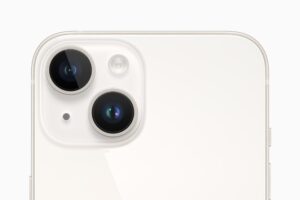Since its launch in 2007, the iPhone has transformed the way we capture and share photographs. The device’s built-in camera, combined with its easy-to-use interface and seamless integration with social media, has made it the go-to choice for millions of people around the world.

Prior to the iPhone’s launch, smartphones were equipped with low-resolution cameras that produced grainy, pixelated images. Professional photographers and hobbyists alike relied on bulky, expensive cameras to capture high-quality images. But with the iPhone’s introduction of a 2-megapixel camera, photography was suddenly accessible to anyone with a smartphone.
Over the years, Apple has continued to innovate and improve the iPhone’s camera, adding features like optical image stabilization, larger sensors, and dual-lens systems. Today, the latest iPhone models can capture stunning photos with intricate detail and vibrant colors that rival even the most expensive professional cameras.
But it’s not just the iPhone’s hardware that has revolutionized photography – it’s the software as well. The iPhone’s native camera app has features like portrait mode, which uses depth-sensing technology to create professional-looking portraits with blurred backgrounds. Smart HDR combines multiple exposures to capture more detail and color in high-contrast scenes, while Night mode enables users to capture bright, clear images even in low-light conditions.
In addition to the native camera app, the iPhone has also spawned a plethora of third-party camera apps that offer even more advanced features and controls. Apps like ProCamera and Camera allow users to adjust shutter speed, ISO, and focus to create custom images that match their creative vision.
But perhaps the most significant impact the iPhone has had on photography is the way it has democratized the art form. With social media platforms like Instagram, Facebook, and Twitter, anyone can share their photos with the world at the touch of a button. The iPhone’s ease of use and convenience have encouraged people to experiment with photography and share their images with friends and followers.
Furthermore, the iPhone has made it possible for photographers to capture and share images in real-time. Events like protests, rallies, and breaking news stories can be documented and shared instantly, providing a powerful tool for citizen journalism.
The iPhone’s impact on photography extends beyond just the device itself – it has also spawned an entire industry of accessories and add-ons. From clip-on lenses and tripods to lighting equipment and editing software, there is an entire ecosystem of products and services designed to enhance the iPhone’s photographic capabilities.
In conclusion, the iPhone has revolutionized photography in countless ways. It has made high-quality photography accessible to anyone with a smartphone, encouraged creativity and experimentation, and enabled real-time documentation and sharing of events. With its advanced hardware and software, the iPhone has transformed photography from a niche hobby to a ubiquitous part of modern life.